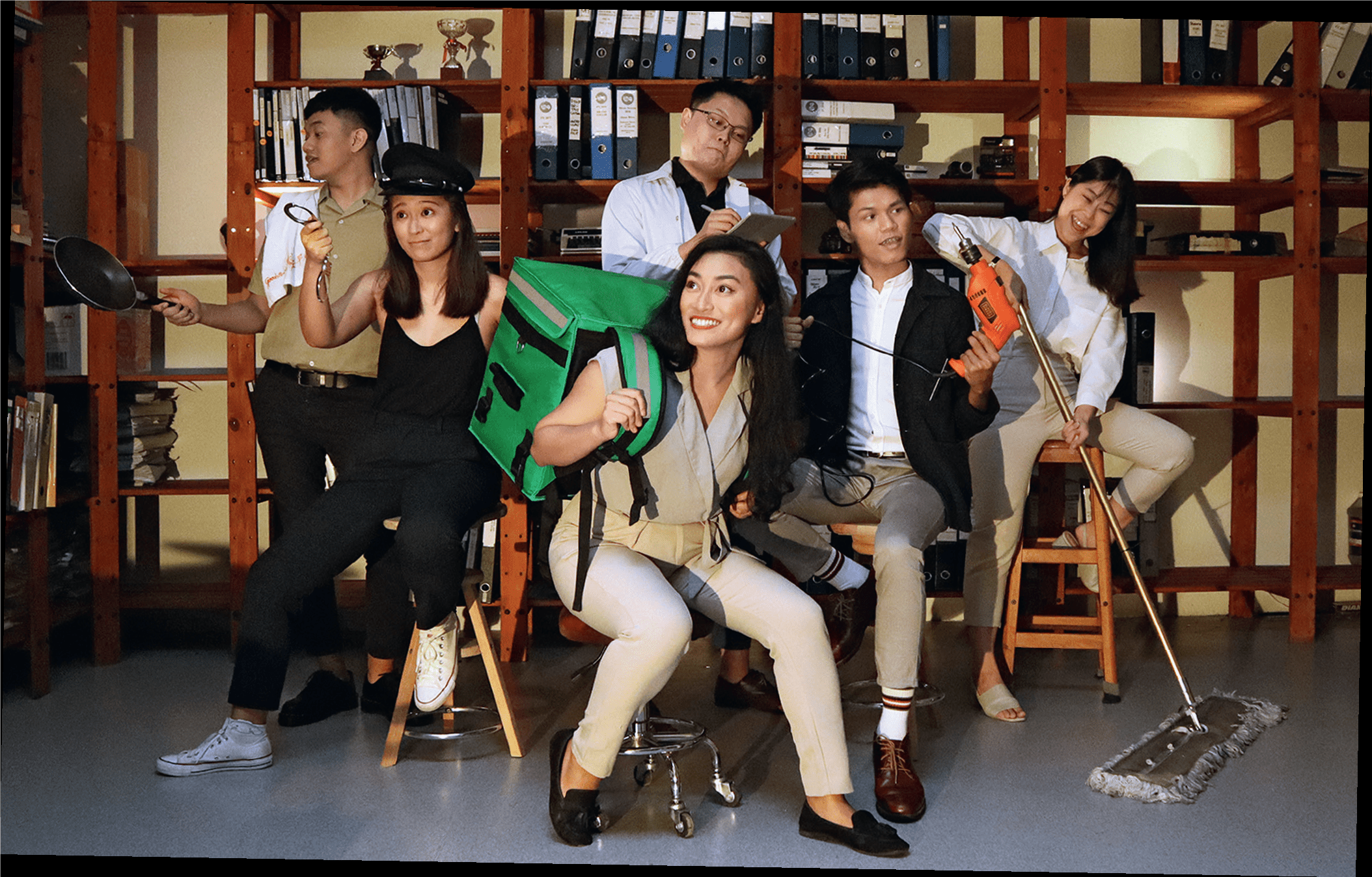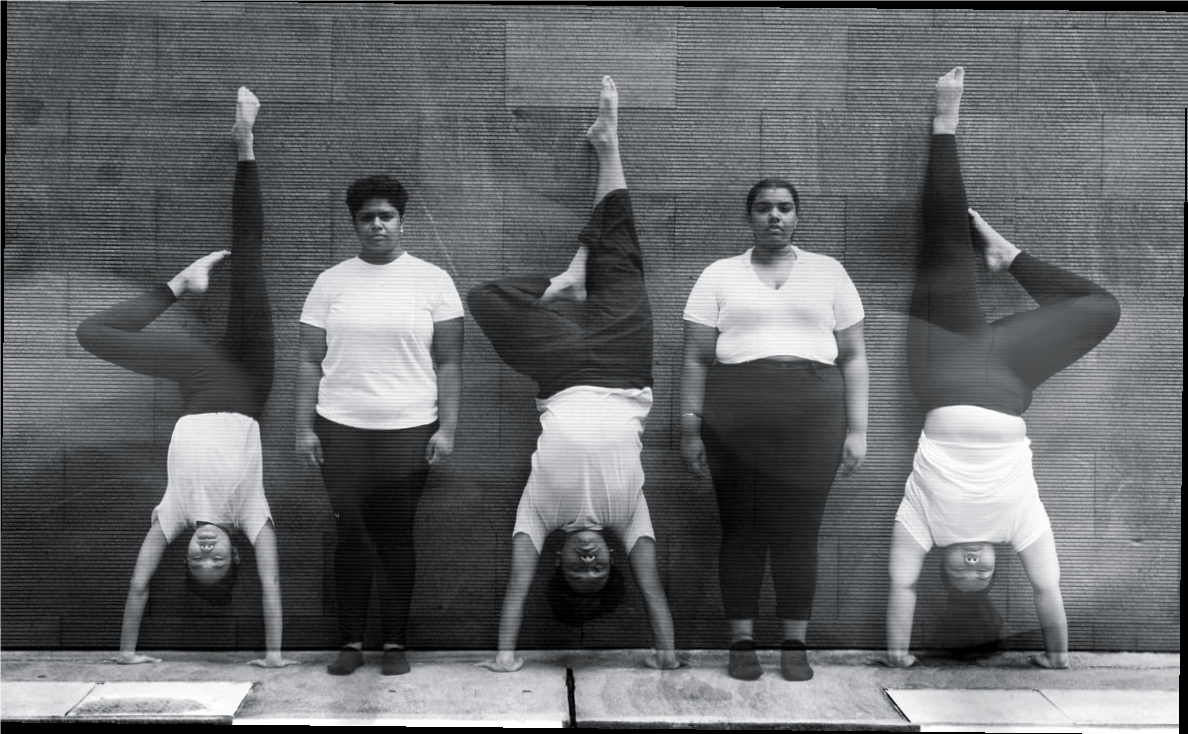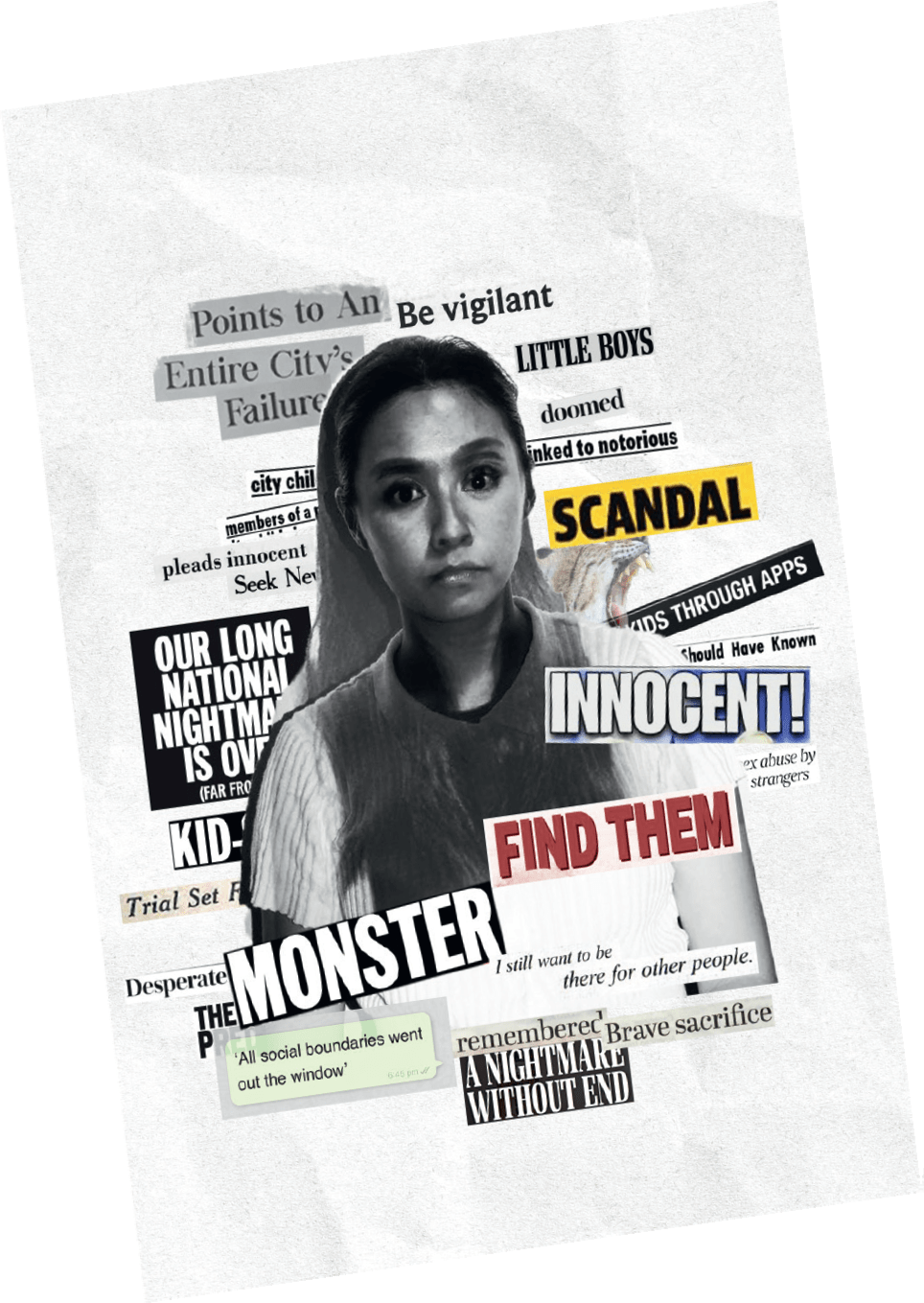Stories > Fringe Benefits Of Helping Others
Fringe Benefits Of Helping Others
This year’s M1 Singapore Fringe Festival presented works by emerging local and international artistes to reflect on the theme of supporting one another during crises.
BY RACHEL AJ LEE
hen I was a boy and I would see scary things in the news, my mother would say to me, ‘Look for the helpers. You will always find people who are helping.’”
It was this early life lesson from mum – inspired in turn from a quote by the famous American television personality Fred Rogers – that led Alvin Tan to the theme “The Helpers” for the 18th edition of the M1 Singapore Fringe Festival (M1SFF) in January this year.
Amid the pandemic-stricken times, the artistic director of The Necessary Stage hoped to better illustrate the oft-unnoticed acts of kindness in the community, while exploring compassion and love between families and friends.
“We wanted to look at a theme that is positive and hopeful in the gloom of the pandemic and show appreciation for the labour that is often unrecognised in our midst,” Tan explains. “And one of the most life-affirming things we saw was how ordinary people were stepping up to help in any way they could.”

The Essential Playlist by The Second Breakfast Company highlighted the plight of essential workers during the pandemic and how individuals and organisations came forward to help them.
CHOOSING THE RIGHT MEDIUM
Launched in 2005, the M1SFF is an annual festival of theatre, music, dance, visual arts and mixed media created and presented by Singaporean and international artistes. With a different theme each year, it aims to bring contemporary, cutting-edge and socially engaged works to the Singapore audience.
“IT IS IMPORTANT TO DISCUSS SOCIAL ISSUES WITHOUT TAKING A RIGID STANCE TO LEARN FROM EACH OTHER. OTHERWISE, WE WILL CONTINUE TO FRACTURE, ATOMISE AND REMAIN OBLIVIOUS TO HOW TO WORK WITH ONE ANOTHER ACROSS OUR DIFFERENCES,” SAYS ALVIN TAN, ARTISTIC DIRECTOR, THE NECESSARY STAGE.

Thai theatre company Circle Theatre’s OK Land is a portrayal of people from different classes; Being by Wei Collective & Collaborators dives into how city dwellers find their breathing rhythm; Pandan by Rupa co.lab explored how people seek peace and allyship.
While the festival is not new in and of itself, delivering its latest edition in the midst of an ongoing global healthcare crisis was no walk in the park.
As festival director for the 2022 edition, Tan says he was reliant on his team – Melissa Lim and Jezamine Tan – as he had only returned to the role after a six-year hiatus. The duo would bring Tan’s attention to local artistes and their relevant works, as well as scour the Internet for international works that would fit the theme.
Besides receiving invitations to showcase these international artistes, Tan and his team also had to suss out the programmes of other similar festivals and performing arts venues for interesting works that also resonated with the theme of help and compassion. Relationships with featured artistes, and consulates and embassies that were nurtured during previous editions helped to spread the word about the M1SFF. This was useful for the curatorial team to consider the artistes’ application.
“There is much rigour involved in balancing the process and product concerns,” Tan explains. “There was also a great deal of administrative work because the international artistes cannot show their works live in Singapore.”
With online videos as the primary mode of transmission, the Fringe Team had to track the development of the artiste’s works – more so if they were new. This included determining if the productions were of high-enough quality to be presented as ondemand videos. “Besides ensuring that the audience would enjoy the performances that they were paying to watch, we could only present the works of the artistes if they were happy with their preparations,” he adds.
Equally important was a good marketing campaign that encompassed both online and outdoor elements to encourage a “good (online) audience turnout”.


0.01 by Nanyang Academy of Fine Arts students underscored the loneliness people are facing due to the pandemic; Borderline by UK theatre group PsycheDelight depicted how the refugees in Calais camp help each other.
GAINING NEW PERSPECTIVES
Among the performances at M1SFF were 0.01– a production that delved into the universal themes of urban loneliness and estrangement in today’s world – by Nanyang Academy of Fine Arts lecturers Rei Poh and Goh Shou Yi, in collaboration with graduating students from the academy’s BA (Hons) Performance Making cohort. Another was The Essential Playlist, by local non-profit theatre group The Second Breakfast Company, which sought to tackle the plight of essential workers, their strenuous working conditions, as well as the undervaluation of such labour.
Rupa co.lab, a Singapore-based collective of theatre makers presented Pandan, a play that explored the private aspects of people’s lives that are exposed to public scrutiny, and the resulting internal and external fissures. It is a poignant depiction of how people end up seeking peace and allyship in the most unexpected places.
On the international front, Thailand-based Circle Theatre presented OK Land, an entertaining and sardonic look at Thailand’s current socio-political climate, while challenging the effectiveness of philanthropy. The British dance film IMAGO – by British artistes Travis Clausen-Knight and James Pett – explored how people need to develop the strength to help rescue themselves from toxic relationships.
Artistes sought to ask their audiences to give themselves time to consider where they stand on certain issues, while resisting premature judgement and practising deferment to process unfamiliar ideological positions. OK Land, for instance, questions why, despite an abundance of givers and supporters, there are still hungry people amid affluent ones, and what it truly means to be deprived – both in the physical as well as metaphorical sense.
CREATIVE OWNERSHIP
The amalgamation of identifying diverse artistes and outreach programmes ensured that M1SFF, by and large, was a successful outing, with participating artistes looking back on their experiences with fondness.
For founding member of Rupa co.lab Nabilah Said, M1SFF helped to foster hope and faith within the collective which, she says, was the “very thing we needed to tide us through this difficult time as theatre-makers.
“Being a relatively new collective on the scene – and one that is made up of playwrights – we face logistical challenges pertaining to presenting our plays. Issues like budgeting, ticketing as well as securing funds and venue may not exactly be our passion as aspiring playwrights,” shares Nabilah.
“Programmes such as M1SFF proved to be a balm for many of the challenges we persistently face,” she says, adding that the collective could focus on the important aspects of the production without having to worry about funding and publicity.
“CULTURAL PROGRAMMES ENCOURAGE THE COMMUNITY TO EMPATHISE WITH OTHERS, AND PROVIDE OPPORTUNITIES TO LEARN ABOUT OTHER PEOPLE. THIS ALLOWS US TO BE MORE EMPATHETIC TOWARDS SPEOPLE FROM DIFFERENT CULTURES AND WAYS OF LIFE,” SAYS NUTTAMON PRAMSUMRAN.

Screen Shot, a play by Bound Theatre, demonstrated both the positive and negative impact of social media on society.
In line with the theme of helping, M1SFF also provided a platform for young and aspiring artistes to explore their creative musings. This empowered them to have a greater say in the creative process, while taking risks and experimenting.
“The opportunity to participate in M1SFF helped to open doors for these young artistes to create an original local play that could fully display their intrinsic talent,” says artistic director Adeeb Fazah, who worked with new entrants and younger talents for The Essential Playlist.
CONTINUING THE CONVERSATION
At the end of the day, Tan and his team hope that the artistes have taken the opportunity to be open when receiving feedback during the creation process of their productions, and realise the importance of processing one’s growth development as an artiste. This is particularly since socially engaged works require rigorous research and discussions to include multiple perspectives. His views are echoed by the participating artistes.
“Cultural programmes encourage the community to empathise with others, and provide opportunities to learn about other people,” posits Circle Theatre playwright and producer Nuttamon Pramsumran, playwright and producer of Thailandbased Circle Theatre. “This allows us to be more empathetic towards people from different cultures and ways of life.
“Such programmes create a powerful hub of creativity and opening of voices for communities across diverse spectrums, which help generate open conversations and allow both artistes and audiences to develop new perspectives,” he says.
In order to track more artistes and theatre companies and eventually pipeline their works for future Fringe editions, Tan says he has been putting his ear to the ground every so often. He adds that the Fringe Festival will stop having a curatorial theme from 2023 onwards to instead focus on “socially engaged works” and “what artistes on the ground are interested in and working on”.
Ultimately, he believes that such crosscultural collaborations require “compassion and kindness” rather than “sticking to our positions, pronouncing judgement, drawing boundaries, and widening the gaps”.
Echoing the artistes’ sentiments, Tan says: “It is important to discuss social issues without taking a rigid stance. Otherwise, we will continue to fracture, atomise and remain oblivious to how to work with one another across our differences,” he concludes.
